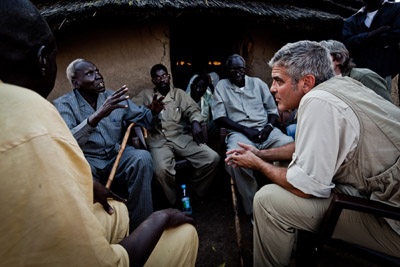
This piece originally appeared in nine different languages on Project Syndicate.
STANFORD – Well, we're in it now. What we do best. Diplomacy. The White House has dispatched Senator John Kerry to Sudan with a proposal for peace between the North and South. It’s a giant step toward avoiding the kind of bloodshed that killed more than two million people in Sudan’s previous 20-year North-South civil war, which ended only in 2005 – and is threatening to erupt once again.
In recent months, President Barack Obama has stepped up his own involvement and that of senior figures in his administration in support of a peace strategy for Sudan. On his behalf, Kerry has delivered a package of proposals designed to break the logjam that has brought the North and South to a dangerous crossroads.
We have written a memo that spells out some of the essential elements of what a grand bargain for peace in Sudan could look like. If you’re interested in the specifics of a possible peace deal – and in actions that you can take to support it – go to www.sudanactionnow.org.
There is little time to waste. On January 9, 2011, the people of Southern Sudan will vote for independence from the North, taking with them up to three-quarters of the country’s known oil reserves and placing millions of civilians in the direct path of war.
The government in Khartoum (the capital in the North) is led by Omar al-Bashir, whose accomplishments, which include overseeing war crimes during the previous North-South war and engineering the atrocities in Darfur, have brought him arrest warrants for war crimes and genocide from the International Criminal Court.
And yet renewed war in Sudan is not inevitable. A complex but workable peace can be brokered if all interested parties become more deeply involved.
We go on to outline a “grand bargain” to “lay the foundation for a lasting peace” between northern and southern Sudan. Keep reading here.

